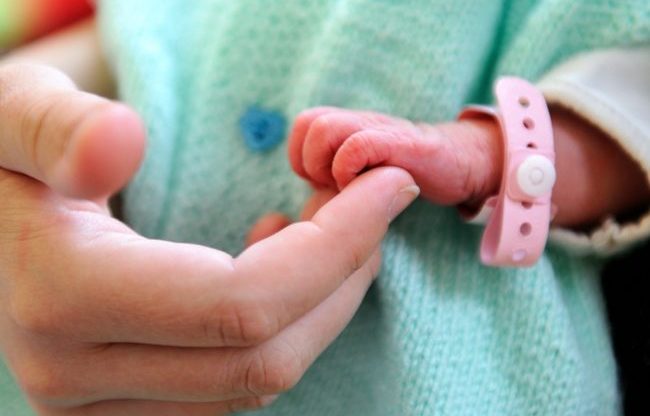First British three-parent baby could be born this year after clinic is approved to start treatment

(PHILIPPE HUGUEN/AFP/Getty Images)
The first British three-parent baby could be born this year after a Newcastle clinic was given the first license.
The fertility regulator Human Fertilisation and Embryology Authority announced this morning that a team of scientists at Newcastle University has been given the go-ahead to perform the procedure.
Because applications are approved on a case-by-case basis by the HFEA, each patient will have to be approved individually, despite the Newcastle scientists being shown the green light.
The HFEA initially indicated that an application for an individual woman to undergo the treatment had been approved.
Later, a spokesman issued a correction, saying: “This is a licence only for the first stage relating to clinic’s capacity to perform the techniques, and no patient application has yet been approved.
“This will form part of the next stage.”
Newcastle University has been at the forefront of these treatments in research, and has now become the first institution to pass the HFEA’s two-stage application process.
HFEA chair Sally Cheshire said: “I can confirm today that the HFEA has approved the first application by Newcastle Fertility at Life for the use of mitochondrial donation to treat patients.
“This significant decision represents the culmination of many years hard work by researchers, clinical experts, and regulators, who collectively paved the way for Parliament to change the law in 2015 to permit the use of such techniques.
“Patients will now be able to apply individually to the HFEA to undergo mitochondrial donation treatment at Newcastle, which will be life-changing for them, as they seek to avoid passing on serious genetic diseases to future generations.”
According to the HFEA, if mitochondrial DNA – which is inherited via the mother – is faulty, she could pass on one of “a number of rare but very serious mitochondrial diseases” to her children.
These can include muscle, cardiac and neural diseases.
IVF (In-Vitro Fertilisation) clinics will be able to replace an egg’s defective mitochondrial DNA with healthy DNA from a female donor’s egg.
This will result in babies having DNA from three people – and effectively, two mothers.
In 2015, The UK became the first country to approve a law to allow babies to be created from the DNA of three people using the technique.
And in September, the first ever three-parent child was born to Jordanian parents, thanks to pioneering work from John Zhang and his team at New Hope Fertility Center in New York City.
Using a technique known as mitochondrial replacement, doctors were able to extract the nucleus from one of the mother’s eggs, inserting it into a donor egg with a nucleus removed.
The egg was then fertilised with the father’s sperm, meaning the baby has DNA from two mothers and one father – also preventing the disease from being passed on.
As the procedure is not legal in the US, it was carried out in Mexico.
